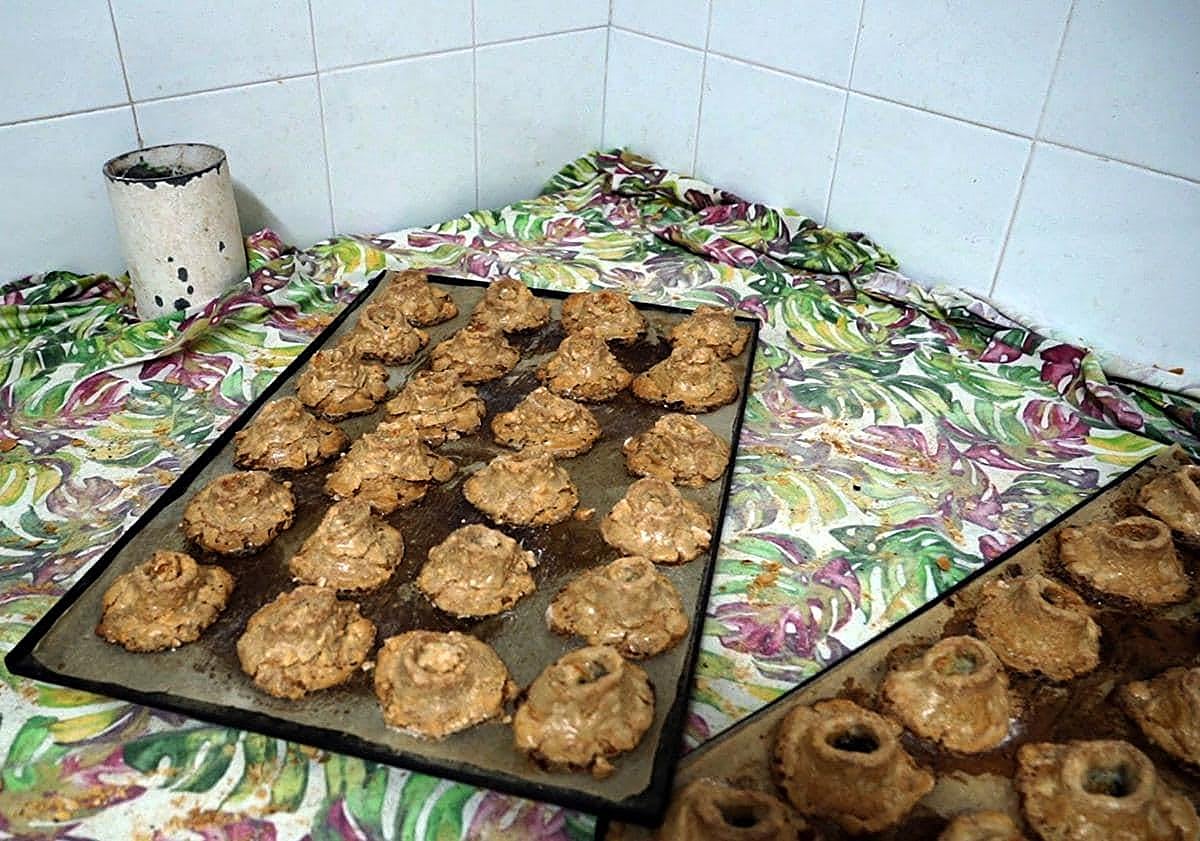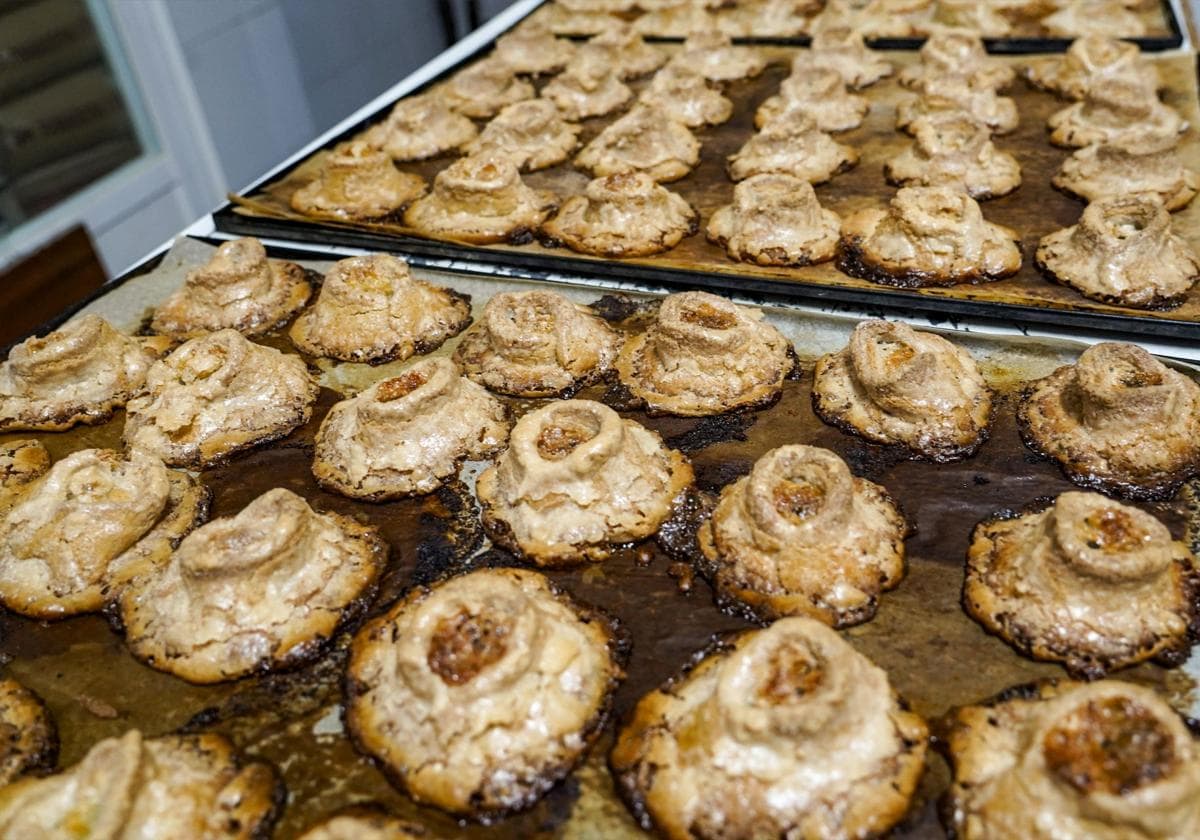The volcano-shaped sweet treats made in the highest village in Malaga province
Made with flour, lard, eggs, an alcoholic liquor and the unmistakable flavours of cloves and cinnamon, the 'rosco carrero' is still made in three local bakeries
It is peculiar both for its shape and its name. The 'rosco carrero' is an unconventional sweet, which is still made today in the same way as it was centuries ago. It is difficult to know its origin, although the fact that its ingredients include lard and an alcoholic liquor suggests it definitely doesn't date back to the Islamic Al-Andalus period.
In the village of Alfarnate in Malaga's Axarquía, where it is still made today in three different bakeries (El Carrero de Alfarnate and the Maravilla and Monsalud bakeries), it is said that its name is related to the cart in which it was transported to Malaga. There are also those who say that the cart that transported them came from a nearby farmhouse and brought them to the village. In any case, it has remained with the name of "carrero", which is not the only thing that makes it original.
In addition to the aforementioned liquor and lard, it is also made with wheat flour, eggs, sugar, cloves and cinnamon. The latter two give it a very unique flavour. Until a few years ago, it was customary in Alfarnate households to make the roscos and to go to some of the bakeries' ovens to finish them. It has been the afternoon snack of choice for many residents of this village, where the elders also continue to have the custom of eating them with a shot of resoli, a coffee liqueur.



This sweet from Alfarnate, the highest village in the province of Malaga, is shaped like a volcano. What is not known for sure is why it was given that shape. "I don't know why it is made like a volcano, but I do know that it is much more difficult than making a rosco or a torta", explains Mayte Peña, from the Monsalud bakery, one of the three bakeries in Alfarnate that maintain the tradition of making this sweet.
"To make it like this is twice as much work", says Rogelio Moreno, manager of El Carrero de Alfarnate, who has been making this and other traditional sweets in his village for more than a decade. Although he is not sure, he speculates that it may have been given this peculiar shape "so that it wouldn't be raw on the inside".
Today El Carrero de Alfarnate makes them in the usual size, but also small versions. Among the latter, there is one with chocolate coating, which is very popular. However, to buy them you have to go to Alfarnate. The more conventional format can be found in other municipalities. For example, the pack containing half a dozen 'roscos carreros' can be bought in a number of places in Malaga city including La Mallorquina, frutería Robles in Calle Gaucín and Covirán Luque, in Puerto de la Torre, among many others.
You will also be able to buy them at the next Gran Feria de Sabor a Málaga, which is held every year on the city's Paseo del Parque over the long bank holiday weekend in December (Friday 6 to Monday 9).
In the case of the Monsalud bakery, located very close to the chapel of the same name and patron saint of the village, they are sold by the dozen or half dozen. "They are also sold in gift boxes or even individually if necessary", says Mayte Peña.
In the third bakery in the village, the Maravilla bakery, a family business located near the Santa Ana church, this sweet has been made for half a century. They also sell them by the dozen, half-dozen and single units.
With no additives, this sweet treat is ideal for eating not only in autumn or during the Christmas holidays, but also all year round. Whoever eats it will be doing their bit to preserve this unique example of confectionery traditional to Malaga province.

